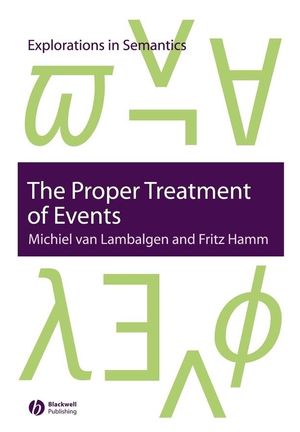The Proper Treatment of EventsISBN: 978-1-4051-1213-0
Hardcover
264 pages
January 2005, Wiley-Blackwell
 This is a Print-on-Demand title. It will be printed specifically to fill your order. Please allow an additional 10-15 days delivery time. The book is not returnable.
Other Available Formats: Paperback
|
||||||
The Linguist List <!--end-->
“This book presents a highly innovative approach to the
semantics of natural language. The authors manage with admirable
ease to draw together insights from different fields and show how
their theory can actually explain facts rather than simply assuming
them. This is not a trivial achievement: to derive even the most
simple sounding conclusion requires a lot of effort. This book is a
truly intellectual book, written with love for the subject. I
consider it a must for everyone who is interested in events or
natural language semantics in general.” The Bulletin of
Symbolic Logic
“This fine book is a welcome addition to the Explorations
in Semantics series. The coverage of the very complex literature in
the area is very good. Content, style, and presentation are all
excellent, and tutorial exercises of the kind appropriate for use
as a basis for a graduate seminar are included.”
Mark Steedman, University of Edinburgh
“This elegant book redefines the traditional study of
temporal reasoning. Merging insights from cognitive science,
computer science, and linguistics, the authors propose an event
calculus for natural language that is computationally tractable and
logically appealing. This original synthesis of AI and linguistic
semantics feels like a natural fit from the start.”
Johan van Benthem, University of
Amsterdam and StanfordUniversity
“This volume helps to bring the study of tense and aspect,
and the correlative study of events in linguistic semantics, within
the purview of algorithmic conceptions of meaning, and other
notions derived from abstract computer science. It will be an
important companion to classical logical and syntactic studies,
contributing to what we may hope will be an eventual unification of
the computational and classical viewpoints.”
James Higginbotham, University of Southern
California
"Michiel van Lambalgen and Fritz Hamm have written a magnificent
book on semantics of temporal discourse in natural languages...
Their book introduces and applies an important new tool of
philosophical analysis, and thus should be available in any good,
analytically oriented philosophical library."
Erkenntnis



